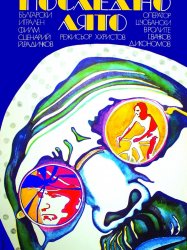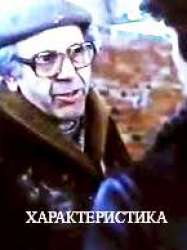Камионът est un film de genre Drame réalisé par Christo Christov avec Grigor Vachkov
Камионът (1980)
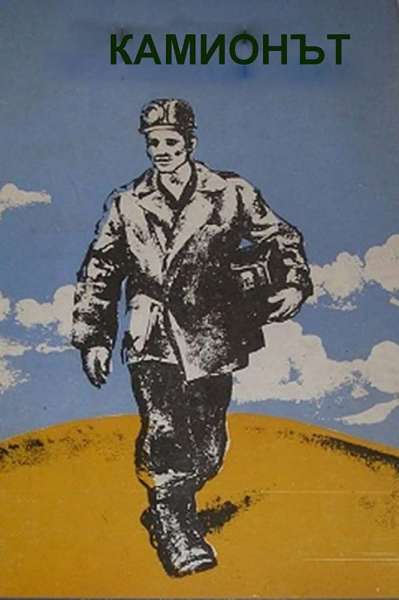
Si vous aimez ce film, faites-le savoir !
The Truck (Bulgarian: Камионът, translit. Kamionat) is a 1980 Bulgarian drama film directed by Christo Christov. It was entered into the 31st Berlin International Film Festival.
Acteurs
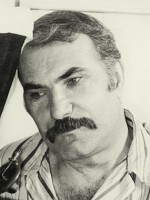
Grigor Vachkov
(Dedleto)

Đoko Rosić
(Chitanugata)
Commentaires
Postez un commentaire :
Suggestions de films similaires à Камионът
Il y a 16 films ayant les mêmes acteurs, 4 films avec le même réalisateur, 61709 ayant les mêmes genres cinématographiques, pour avoir au final 70 suggestions de films similaires.Si vous avez aimé Камионът, vous aimerez sûrement les films similaires suivants :

La Barrière (1979)
, 2h28Réalisé par Christo Christov
Genres Drame, Science-fiction, Fantasy
Acteurs Innokenti Smoktounovski
Note70%





Dans ce film, la barrière incarne la frontière entre la réalité et les rêves, le modèle de l'harmonie et du bonheur. La délicate, jolie et sensible Dorotea et le calme compositeur d'âge moyen Antoni se rencontrent par hasard. Il l'accueille dans sa maison. Le célèbre compositeur tombe sous le charme de la jeune Dorothea : une jolie fille à la peau fine, bien qu'assez excentrique.

Les Harmonies Werckmeister (2001)
, 2h25Réalisé par Béla Tarr, Tommy Wiseau
Origine Hongrie
Genres Drame
Acteurs Hanna Schygulla, Đoko Rosić, János Derzsi, Ferenc Kállai
Note79%





Dans une petite ville de la plaine hongroise, arrive un sinistre cirque itinérant qui traîne une baleine dans une remorque. Un jeune homme, János, tente de préserver l'ordre dans la ville de plus en plus perturbée, mais en même temps il perd sa foi dans cet univers non naturel et chaotique que Dieu lui-même semble avoir déserté.

Midi Torride (1965)
, 1h29Réalisé par Zako Heskiya
Genres Drame
Acteurs Peter Slabakov, Grigor Vachkov, Rousy Chanev, Dimitar Panov, Dimitar Manchev
Note67%





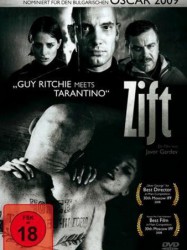
Zift (2008)
, 1h32Réalisé par Javor Gardev
Origine Bulgarie
Genres Drame, Thriller, Policier, Humour noir
Acteurs Đoko Rosić, Zachari Baharov
Note71%





On connaît tous l'histoire du type qui sort de prison après avoir purgé une peine pour un crime qu'il n'a pas commis et qui n'a qu'une envie: se venger. Dans le cas de Moth, les choses sont plus complexes. Ce Bulgare a été incarcéré en 1944 avant le coup d'État communiste et recouvre sa liberté en 1960. Il ne reconnaît plus Sofia, totalitaire, violente, peuplée d'individus louches, ouverte à toutes les bassesses. Un grand film noir (et blanc) !
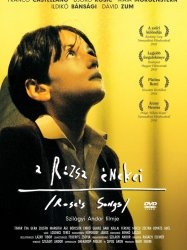
A rózsa énekei (2003)
, 1h38Genres Drame
Thèmes Politique
Acteurs Franco Castellano, Maia Morgenstern, Ildikó Bánsági, Đoko Rosić, Zoltán Gera, Piroska Molnár
Note60%





Autumn 1944. Yellow star, ghettos, Arrow Cross terror. The inhabitants of Hungary's capital, Budapest, await the tragic fulfilment of their fate with helpless resignation. However, above one of the city's villas, once a week in the evening the stars of hope sparkle, if only for a few minutes. This short time gives fresh heart to those hiding here and kindles hope in their tortured souls to live for another day. This mysterious power is none other than a beautiful song that can be heard at such times from the villa's tower room. Géza Halász, the villa's always jovial caretaker, believes no Jew has reason to fear while the owner of the voice, Imre Rose, the world-famous opera singer and a Jew himself, remains in Budapest and does not flee from the country in spite of his American, British, Swiss, Swedish and Vatican connections. Halász visits the singer every Friday to dine with him. After a while the marvellous, hope-inspiring concert starts, which is listened to by the hiding inhabitants of the house with enraptured faces through the villa's open dumb waiter. Already in the "palmy years of peacetime" Rose had competed with Csortos, the famous actor, for the title of "Budapest's Greatest Misanthrope". Thus it does not surprise anybody that the eccentric singer never, not even once, tries to make contact with his fellow Jews who took refuge in his house. And when Halász recounts that the singer swore within an hour of the Arrow Cross's seizing power that he would not utter a single word nor cross the threshold of his tower room until "Andrássy Avenue has been purged of this Arrow Cross scum", even the slightest suspicion about Rose's "invisibility" vanishes. Only a fourteen-year-old boy, Tommy, the caretaker's son, listens to the weekly song with curiosity combined with suspicion, and tries to find out about the secret of the tower room. As a result of the adolescent's persistent and undaunted inquiries, the opera singer's mystery is unveiled. Meanwhile, however, almost unnoticed, the events of the calamitous days, filled with excitement and cheerfulness, turn the boy into a truly adult man. The story of THE SONGS OF RÓZSA is based on true events.
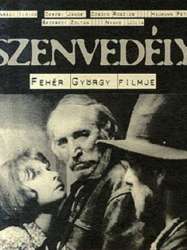
Szenvedély (1998)
, 2h35Réalisé par György Fehér
Genres Drame
Thèmes Sexualité
Acteurs Ildikó Bánsági, Đoko Rosić, János Derzsi, Zoltán Bezerédy
Note73%





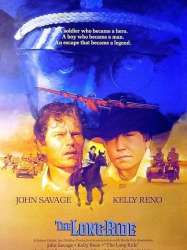
À bride abattue (1983)
, 1h36Réalisé par Pál Gábor
Genres Drame, Guerre, Action
Acteurs Ildikó Bánsági, Đoko Rosić, Kelly Reno, John Savage
Note58%





Un aviateur américain s'écrase en Hongrie, au cours de la Seconde Guerre Mondiale. Il va déjouer l'ennemi nazi grâce à l'aide de cowboys magyars ...
 Connexion
Connexion
